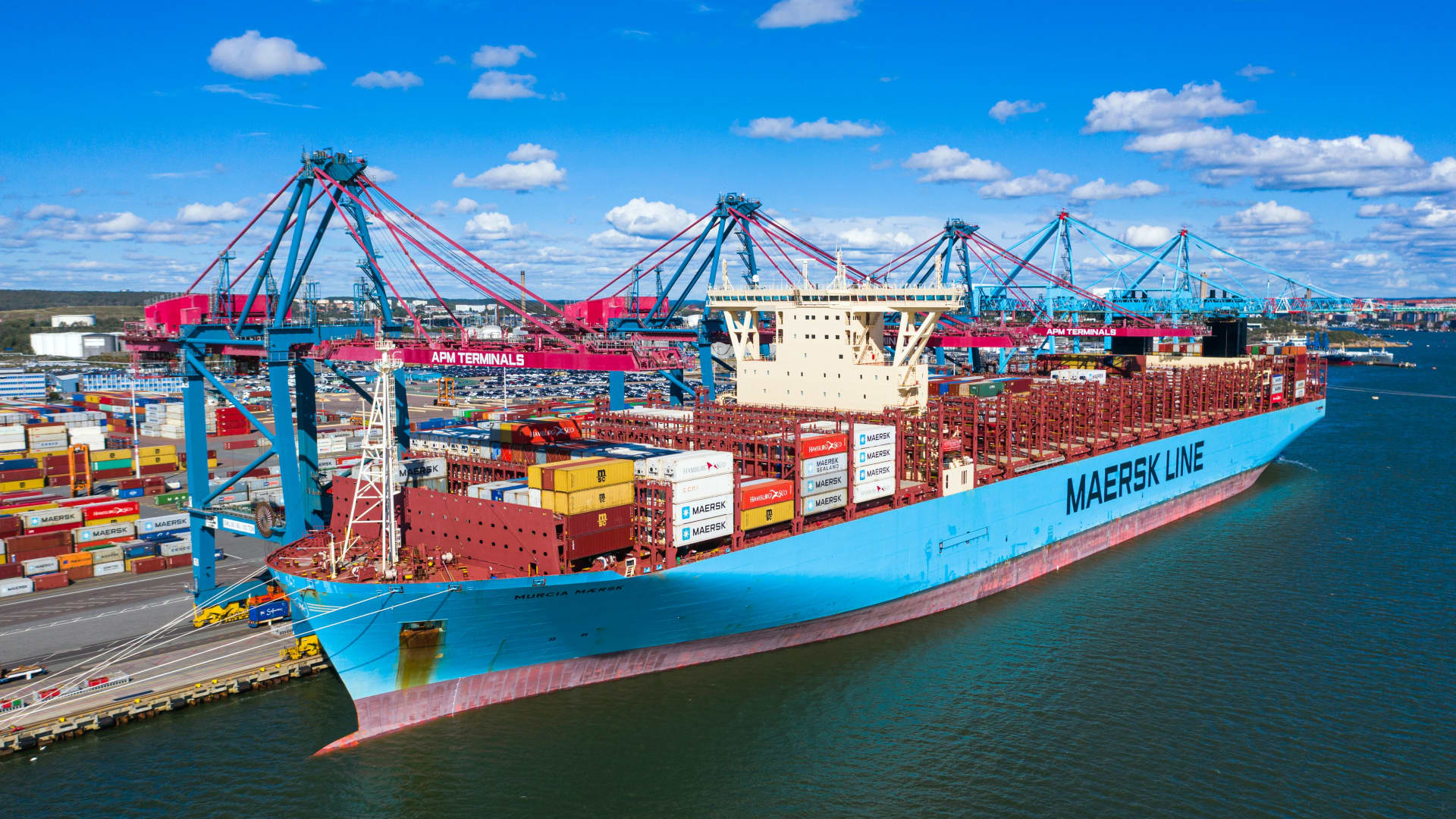Shipping giant Maersk, a bellwether for global trade, on Friday announced plans to reduce its workforce by more than 10,000 people and said it expected profit to be at the low end of prior guidance.
Shares of the Danish firm had fallen 18% by early afternoon to their lowest level since October 2020.
“Our industry is facing a new normal with subdued demand, prices back in line with historical levels and inflationary pressure on our cost base,” CEO Vincent Clerc said in a statement, adding that overcapacity in most regions had driven down prices.
Maersk maintained full-year EDITDA (earnings before interest, taxes, depreciation, and amortization) guidance of $9.5 billion to $11 billion, but said it expected it to come in at the lower end of this range.
Third-quarter revenue dropped from $22.8 billion in 2022 to $12.1 billion.
It comes after Maersk reported record earnings in 2022, with full-year underlying EBITDA of $36.84 billion.
A surge in demand and mammoth supply chain challenges during the pandemic saw freight rates soar, but this trend has now cooled amid a gloomy macroeconomic picture.
The company is accelerating cost and cash containment measures as a result, Clerc said.
The job cuts, which will see its headcount reduced from 110,000 in early 2023 to below 100,000, are expected to result in savings of $600 million in 2024 compared to 2023.
“Transportation demand [for Maersk] will be strong if the economy is going well, but the opposite will apply if there are clouds on the horizon,” Russ Mould, investment director at AJ Bell, said in a note Friday.
“To make matters worse, normal industry dynamics in such a situation aren’t playing out as expected. Traditionally when demand falls, more ships are idled but Maersk says such activity isn’t accelerating in the transportation sector,” he added.
“That means overcapacity – great if you are the person paying to move goods from A to B as it should enable you to barter for a lower price, terrible if you’re the one owning and operating the ships.”
